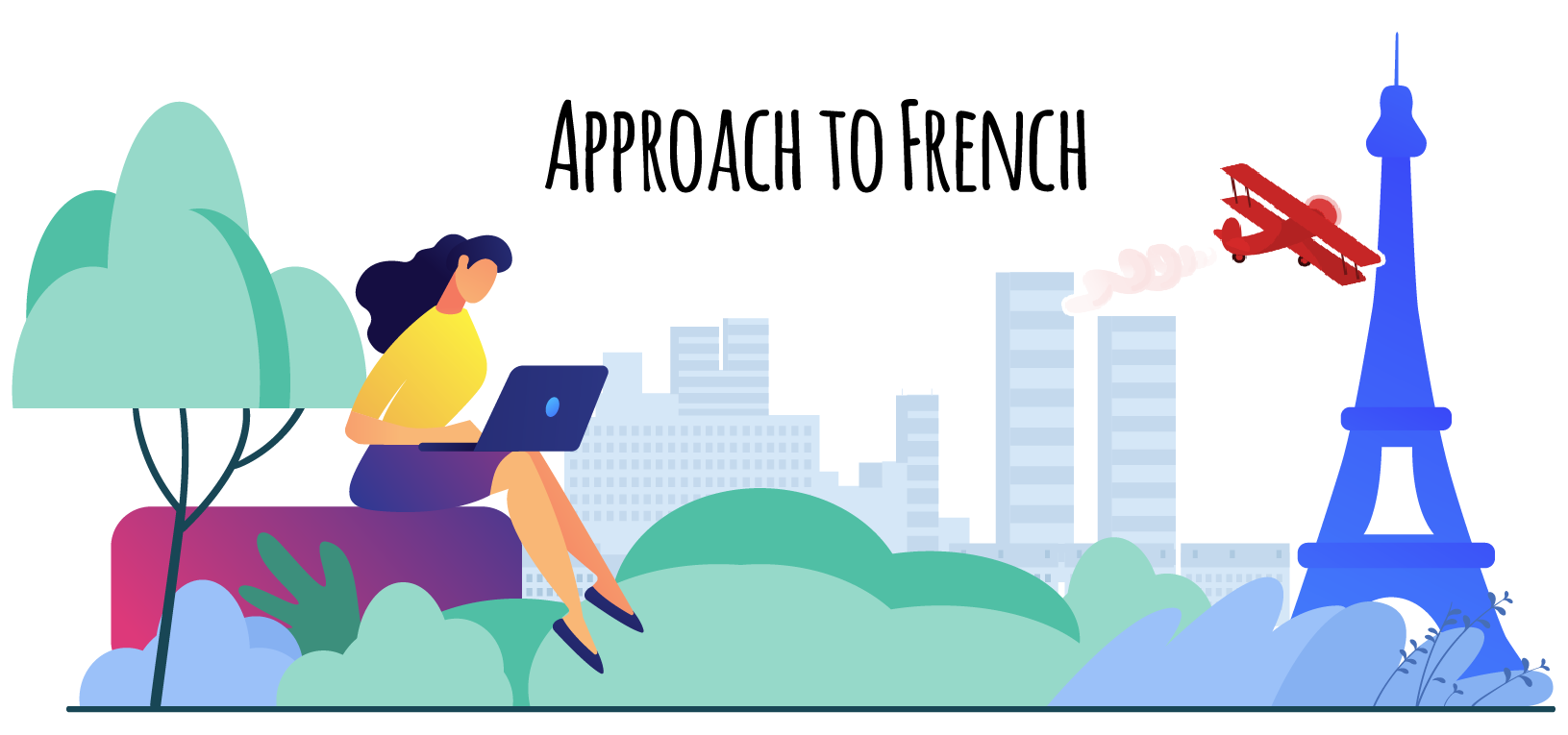Approach to French

Approach to French
If you have decided to start studying the French language on your own , in this article we provide you with the precise elements to start, starting from the base of a total ignorance of said language, while you find the appropriate method for you. As French contains a series of rules for its pronunciation, we believe it is appropriate for you to know them, and with that, you can at least read your new language.
Pronunciation (consonants)
Although many of the consonants are pronounced very similarly in Spanish and French, there are some exceptions. These are some of the most important:
- cc : Sounds like “ k ” before a, o or u (ex: accompagner) and like “ ks ” before vowels e or i (ex: accent).
- d : sounds like ” t ” at the end of a word when it is attached to the next.
- f : sounds like ” v ” at the end of a word when it is attached to the next.
- gn : generally sounds like “ ñ ” (ex: peigne).
- r : pronounced with a guttural sound (ex: route).
- s : sounds like ” k ” between vowels, sounds like ” z ” at the end of a word when it is joined to the next.
- t: sounds similar to “ s ” in the final syllable “ -tion ” (ex: attemtion).
- v : in French it has a velar sound differing from “b”.
- w : sounds like “ v” (ex: wagon) or “ u ” (ex: windsurf).
- x : generally sounds like ” ks ” (ex: taxi)
Final consonants are generally not pronounced. However, when the next word begins with a vowel, the consonant is pronounced with it. Example: “c´est) urgent” is pronounced = se turyan)
Joint vowels and diphthongs
- a : sounds like the ” a ” in “cantar” (ex: plage)
- ai : sounds like ” e ” (ex: aimer, serait)
- sounds like “ ai ” before final “ll” or “l” (ex: faille)
- au : sounds like ” ou ” (ex: manteau)
- é: sounds like “ e ” (ex: équipement)
- è : sounds like (e) open ( ex: mère )
- ê : sounds like (e) cpn long sound (ex: bête)
- e : has no equivalent in Spanish, but is between the sound of the “ a ” for “door” and the “ e ” for “eat” (ex: hirondelle)
- er : sounds like ” e ” in the infinitive (ex: appeler)
- eu / oeu : it has no equivalent in Spanish, but it is close to the sound of the “ a ” (ex: peur).
- eau: sounds like closed “o” (ex: anneau)
- ô : sounds like “ o ” (ex: hôpital)
- oi : sounds like “ uá ” (ex: mois)
- ou : sounds like “u” (ex .: (blouse)
- u : sounds between “u” and “i” – with narrowed lips (ex: musique).
Nasal
These are the most important
- aim, ain, eim, ein, im, in : they sound like the ” a ” nasal closed (ex: faim)
- am, an, em, en, um, un : they sound like the nasal open “ a ” (ex: encore)
- om, on : they sound like “ o ” (ex: oncle)
To hear the sounds in French you can connect:
Below you can practice how to pronounce in French, imagining that you have a first contact with a native speaker:
First contact
- −− My name is …
- Je m’appelle …
- −−I am Spanish
- Je suis espagnol
- −−I live in …
- J’habite à …
- My address is…
- Voici mon adresse …
- -Do you speak Spanish?
- Parlez-vous espagnol?
- -Is there someone that speaks Spanish?
- Y a-t-il quelqu’un qui parle espagnol?
- -I do not speak French
- Je ne parle pas français
- -I do not understand
- Je ne comprends pas
- – Do you understand me?
- Est-ce que vous me comprenez
- -Can you repeat it please?
- Voulez-vous répeter, s’il vous plaît
- -Speak slower please
- Parlez plus lentment, s’il vous plait
- “Can you speak louder?”
- Pourriez-vous parler plus haut?
- -What does that mean?
- Qu´est-ce que cela veut dire?
Can … Pouvez vous …
- …help me? … M’aider?
- … Tell me? … me dire?
- … Tell me the… m’indicate the
- address for ..? direction de…?
- …to write? … Écrire?
- …explain? … expliquer?
- …repeat? … répéter?
- …spell out? … Épeler?
- …translate? … traduire?
How do you say that in French?
- Comment dit-on cela en francais?
Do you have a dictionary?
- Est-ce que vous avez un dictionnaire?
Show me the … montres-moi …
… phrase … la phrase
… Word… le mot
I can’t find the correct translation
Je ne trouve pas la bonne traduction
How do you pronounce this?
Comment se prononce cela?
I’m not sure it’s pronounced like that.
Je ne sui spas sûr (e) pas que la prononciation soit juste
Questions
- Who…?
- Qui…?
- Who?
- Qui est-ce?
- How?
- Comment?
- How can I go to…?
- Commetn puis-je aller à…?
- What is this called in French?
- Comment appele-t-on ceci en français?
- How far?
- Á quelle distance?
- Why?
- Pourquoi?
- What is it?
- Quoi’est-ce que c’est?
- What?
- Quoi?
- What does this mean?
- Qu’est-ce que ça veut dire?
- What does that mean?
- Qu’est-ce que cela signifie?
And if after all this, you consider obtaining your official degree (in any foreign language) visit the website of the number 1 platform in online enrollment.


